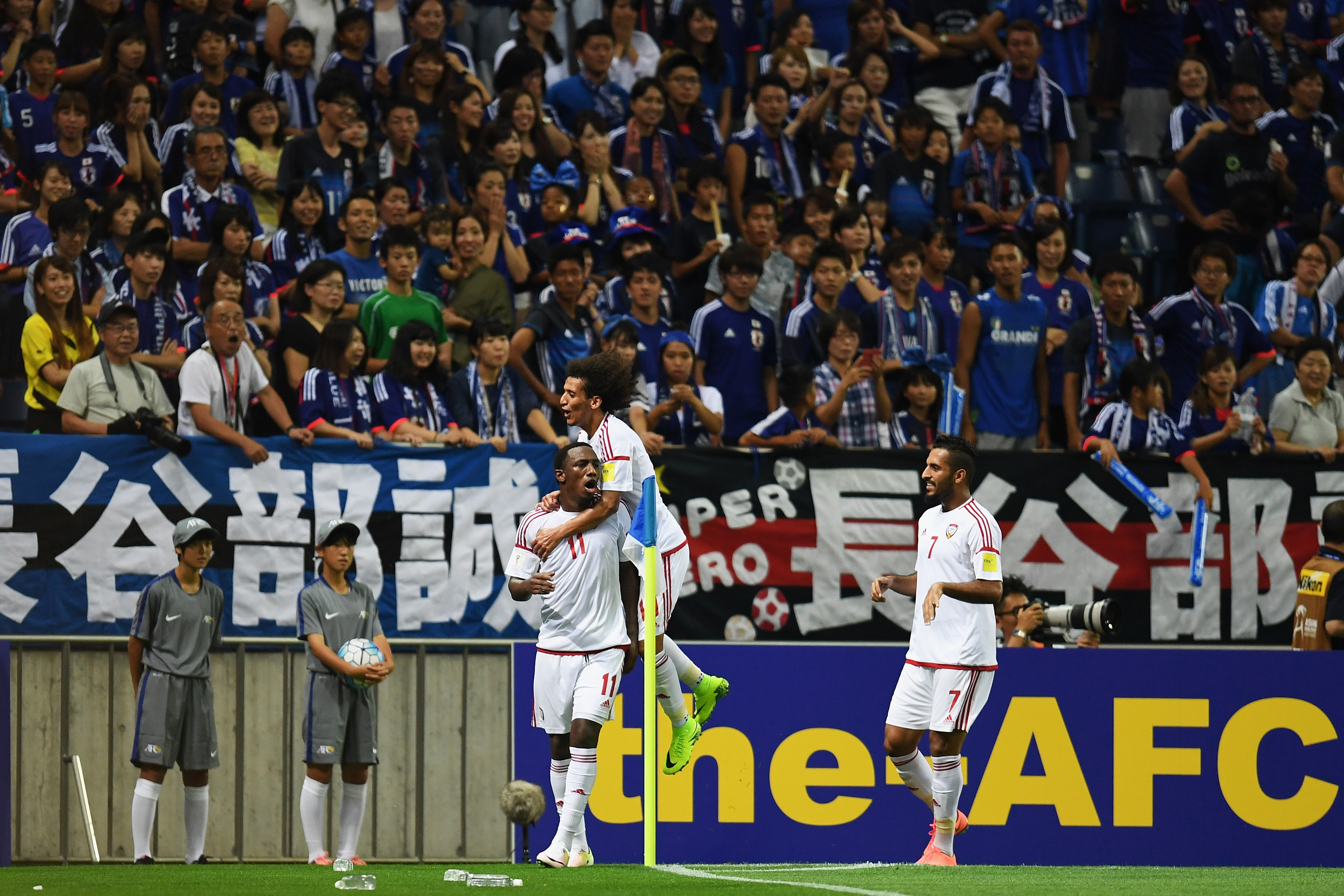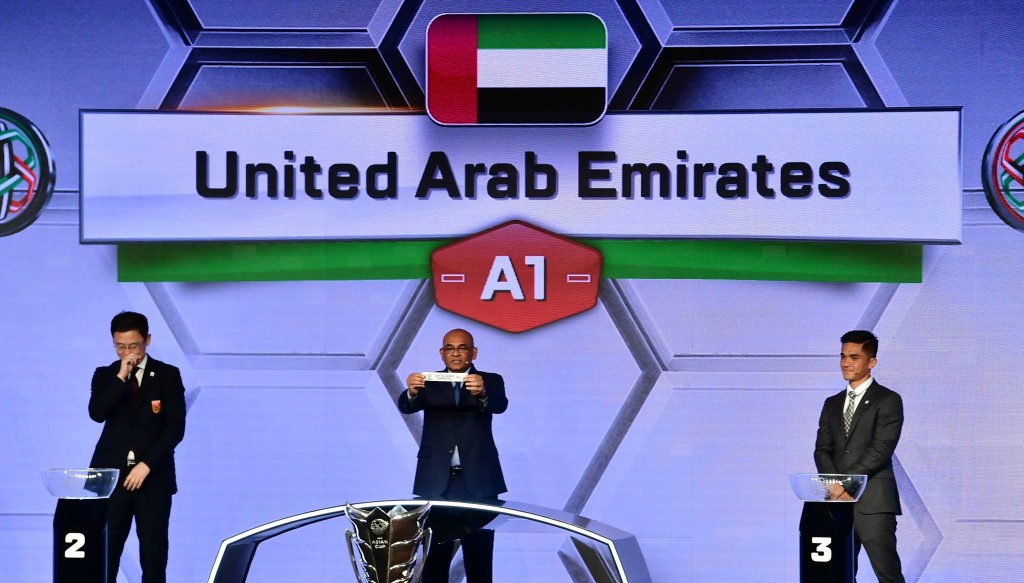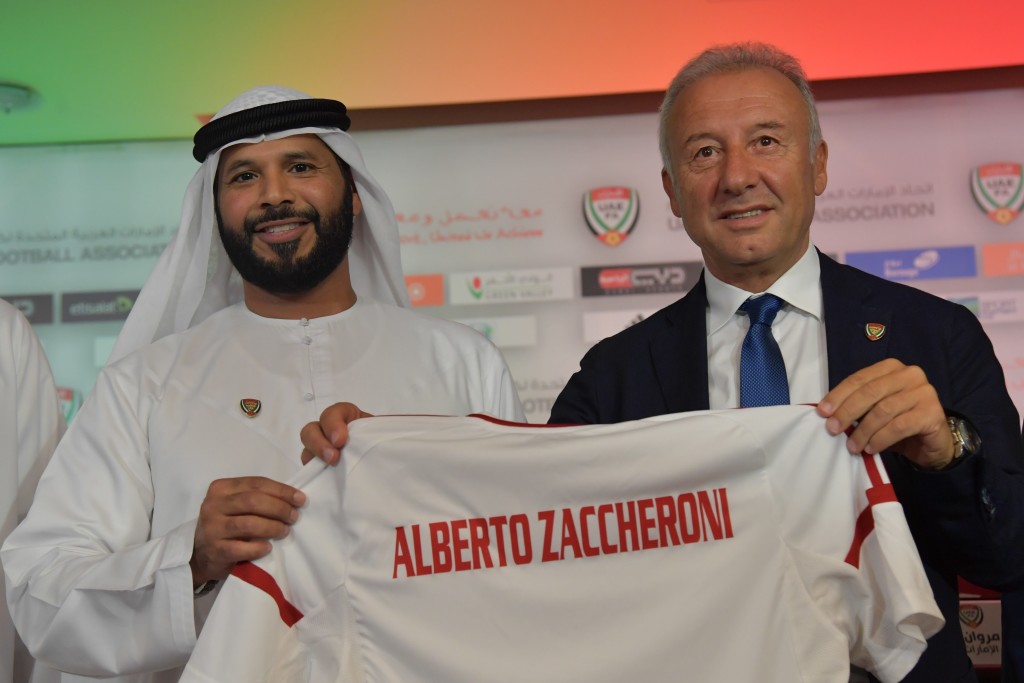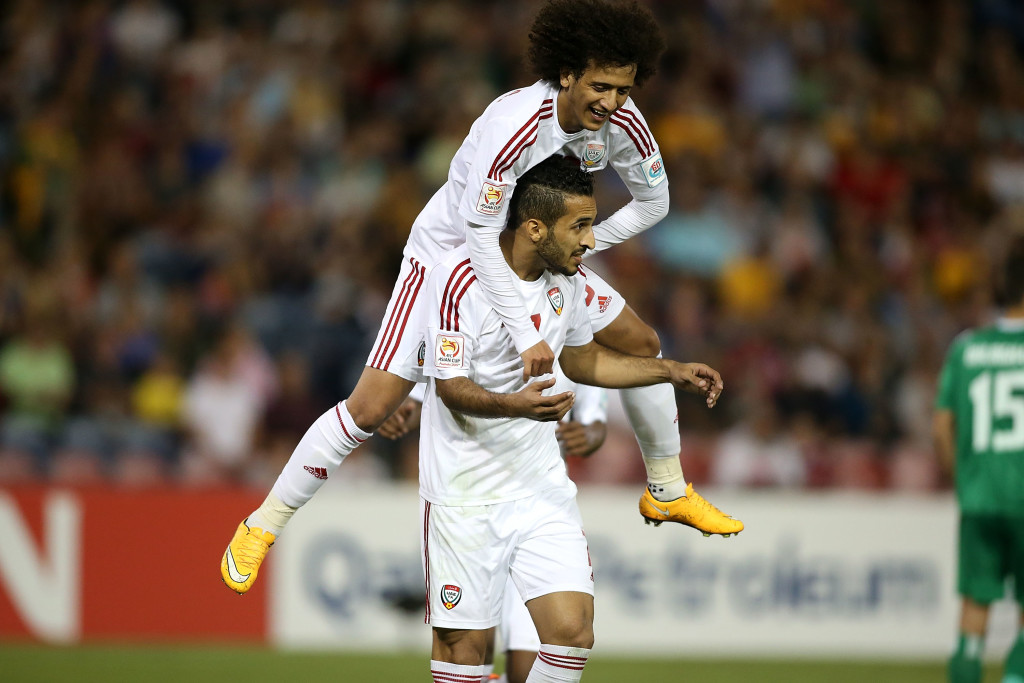
Next year’s Asian Cup provides a dozing UAE with a perfect chance to rise from their slumber and remind the world of their undoubted but as yet unrealised talent.
The UAE have long been poised to pounce and make an impact on world football – it seems they’ve been ready ever since bursting into the public eye and impressing at the Olympic Games in London six years ago.
With mercurial, generational talents like Omar Abdulrahman and Ali Mabkhout spearheading the nation’s greatest-ever team, many believed world domination was inevitable.
It hasn’t quite worked out that way.
However, hosting the largest-ever Asian Cup in eight months’ time provides an ample opportunity to finally unleash their promise.
They need only look back into the archives, and to the last and only previous time the country hosted the prestigious tournament, for inspiration.
Tomislav Ivic’s team made the 1996 final and were only denied a dream climax when cruelly defeated by Gulf rivals Saudi Arabia 4-2 in a penalty shootout.
What better way to both honour that memory and finally bestow true value upon the ‘Golden Generation’ tag than by lifting a maiden Asian Cup on home soil.

The UAE will host the 2019 Asian Cup, beginning January 5 next year.
They have the best part of a year to get their act together under Alberto Zaccheroni – who has form in the tournament, having led Japan to the 2011 title.
The iconic Italian, ironically, was in charge of the Samurai Blue when they were sliced down to size three years ago in Australia by the UAE. The 5-4 penalty shootout triumph in the 2015 Asian Cup by Mahdi Ali’s men in Sydney seemed like a seminal moment.
From 2012’s emergence onto the world stage, passage into the 2015 Asian Cup semi-finals showed clear progress was being made. They were defeated by 2-0 in the last four by hosts Australia – who would go on to lift their first Asian Cup – but that was irrelevant. Something special was stirring.
Instead of ending in a crescendo of celebration by reaching just a second-ever World Cup finals, however, a cacophony of disapproval led to Ali resigning in March 2017 after a 2-0 defeat to the Socceroos and amid a disappointing start to 2018 World Cup qualifying.
Replacement Edgardo Bauza’s brief reign ended embarrassingly when he defected to Saudi in September last year – although further farce was to follow when he was sacked just two months and five friendlies later.
Zaccheroni’s early tenure has hardly yielded cause for optimism. Four defeats have come from nine games, including losing the last three in a row.
Lethargic displays in December’s Gulf Cup campaign culminated in two missed Abdulrahman penalties – initially in normal time and then decisively in the ensuing shootout – as the UAE were sheepishly herded out by Oman in the final.

Alberto Zaccheroni replaced Edgardo Bauza as UAE coach in October.
To compound matters, the star duo of ‘Amoory’ and Mabkhout were subsequently handed four-match domestic suspensions for leaving the Whites’ hotel in Kuwait City without permission the night before the January 5 final, while they were also omitted from Zaccheroni’s first squad after that for March friendlies with Slovakia and Gabon.
Yet, if only the right formula can be found there is something truly explosive within this UAE side. If Zaccheroni, or anyone else, can find a match to ignite that fire, a white hot future awaits the Whites.
Outsiders are keenly aware of it. Australia assistant Ante Milicic said at the Asian Cup draw in Dubai on Friday: “I look at their team and on paper there’s so much talent, particularly going forward. They’re defensively sound and I feel Zaccheroni will bring a good defensive structure to their game. There’s a lot of positives for them.”
Abdulrahman, Ahmed Khalil, both 26, and Mabkhout, 27, are approaching their prime with a hoard of youngsters – Rayan Yaslam, Khalfan Mubarak, Mohamed Al Akbari, Jassem Yaqoob, Ahmed Al Attas and Mohammed Al Attas – eagerly awaiting their chance to impress.
Among the seasoned troops are dependable figures like Ismail Ahmed, Mohanad Salem, Mohammed Ahmed, Habib Fardan, Majed Hassan, Khamis Esmail, Walid Abbas and Amer Abdulrahman.
Such a glittering cast must no longer settle for being the support act to Saudi, Australia, Japan or the rest of the Asian elite.
SIMILAR STORY AT CLUB LEVEL
The UAE’s malaise at international level is reflected in the club game.
As Japanese, South Korean, Chinese and even Australian teams have flourished, west Asia nations – particularly teams from the UAE – have floundered.
Teams from the Emirates have featured in two of the last three AFC Champions League finals – Al Ain and Al Ahli (now Shabab Al Ahli). The last four semi-finals have also housed these two sides.
Al Jazira, UAE champions a year ago, brushed aside ACL champions Urawa Reds on their way to a dream December FIFA Club World Cup semi-final with Real Madrid.

Generational talents: Ali Mabkhout and Omar Abdulrahman.
Yet, just like their national side, domestic teams falter at the most crucial juncture.
Both clubs and nation need to start marrying their undoubted style with substance. Even though they might not want to hear it, the UAE must look at rivals Saudi Arabia’s progress.
The Green Falcons are a mirror image of the Whites. But while they are soaring after securing a return to the world’s biggest footballing stage for the first time in 12 years and a fifth time in total, the UAE remain grounded, still preparing to launch only their second-ever assault on the global showpiece after their World Cup debut at Italia 90.
That simply must change. And if next year’s continental cup can be obtained, there’s every reason to believe the UAE can finally fly.